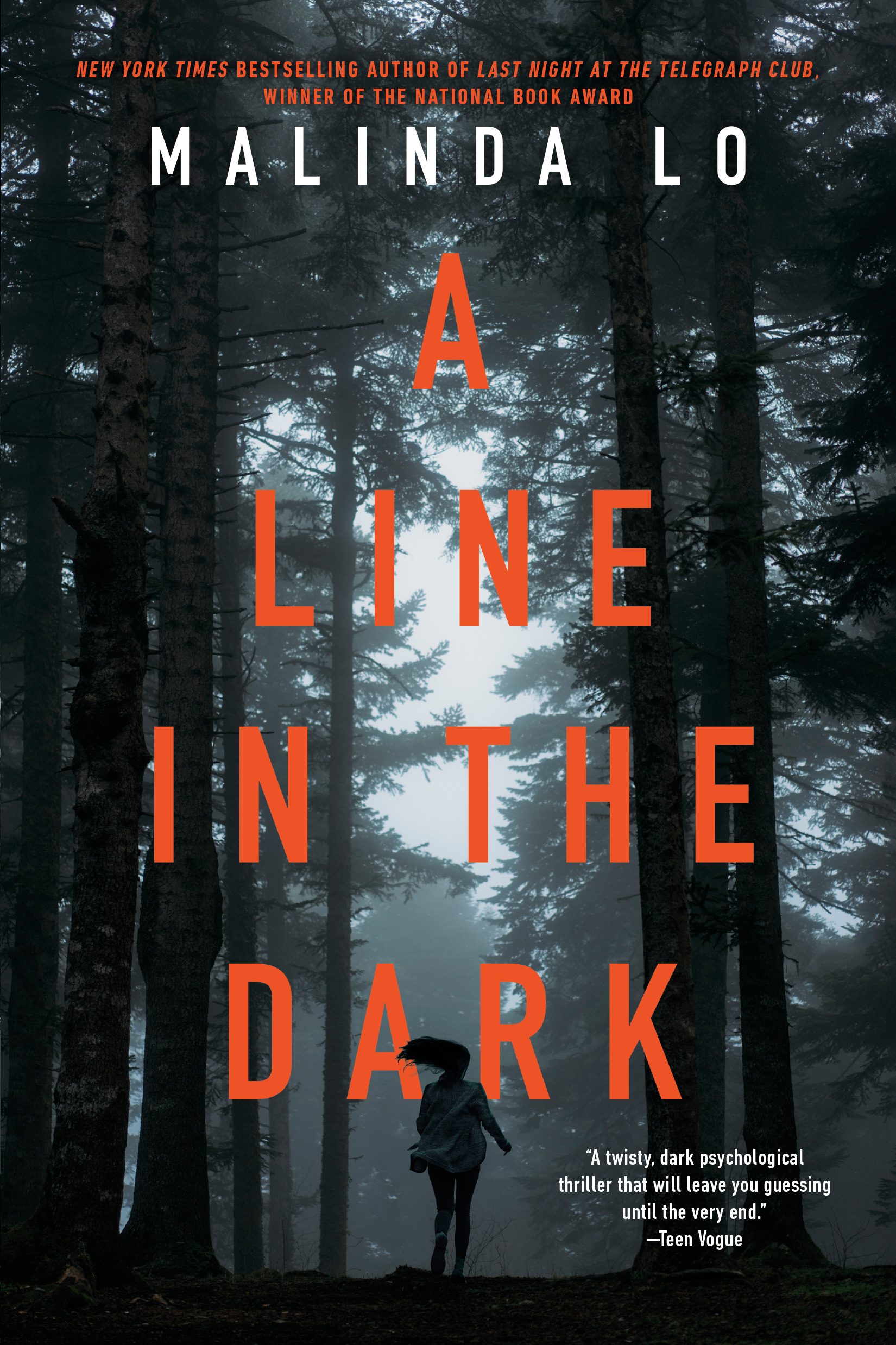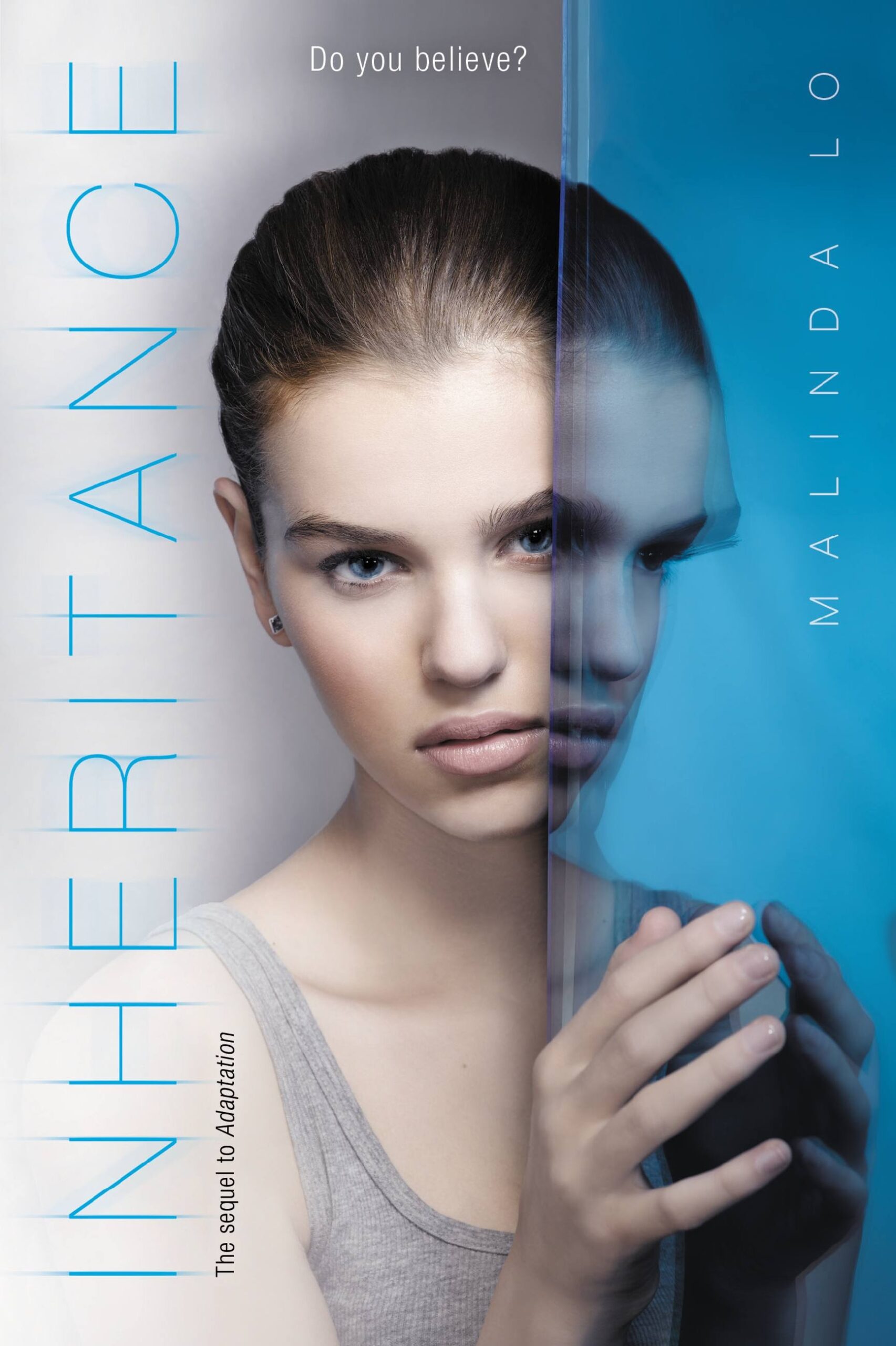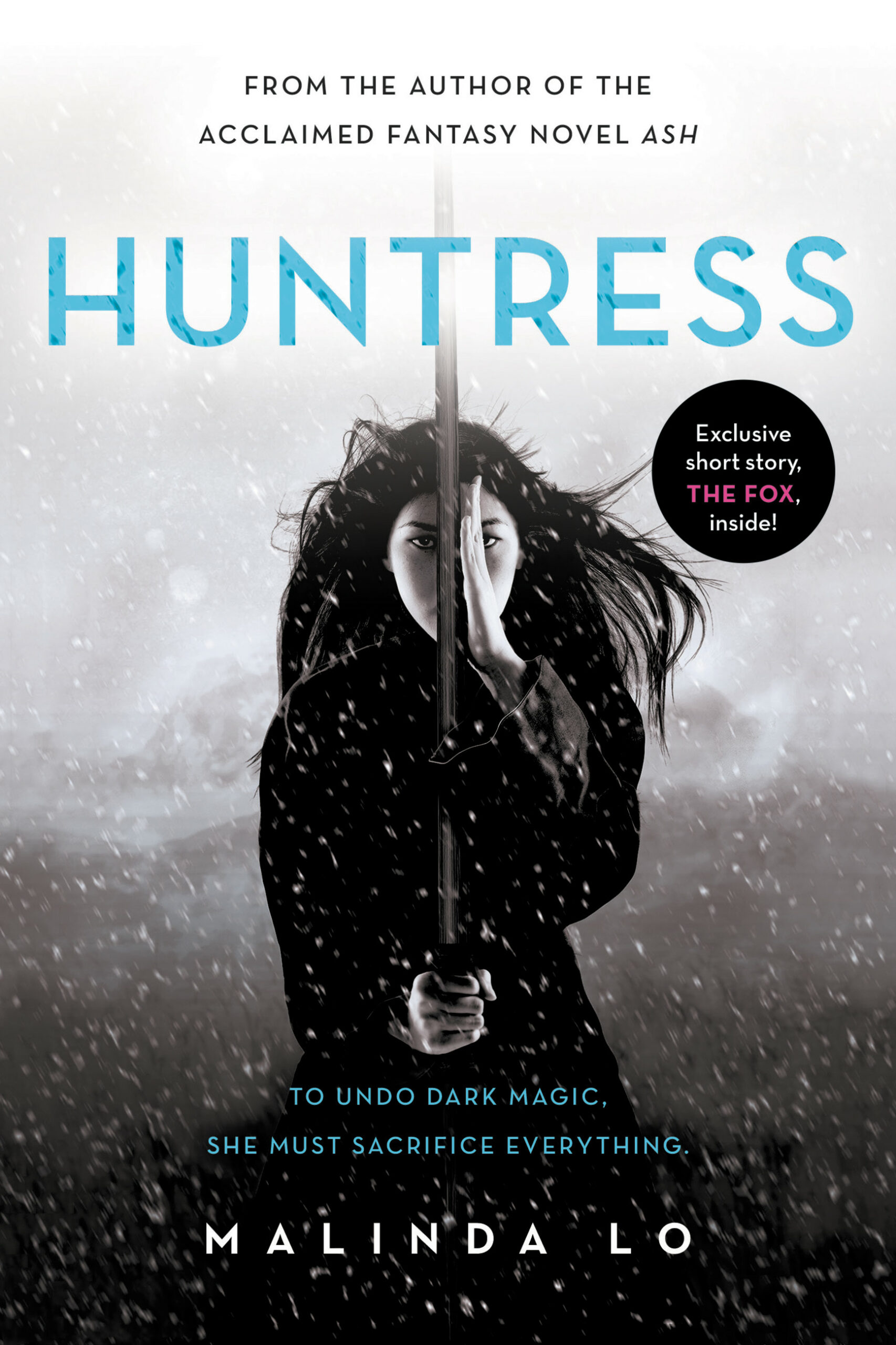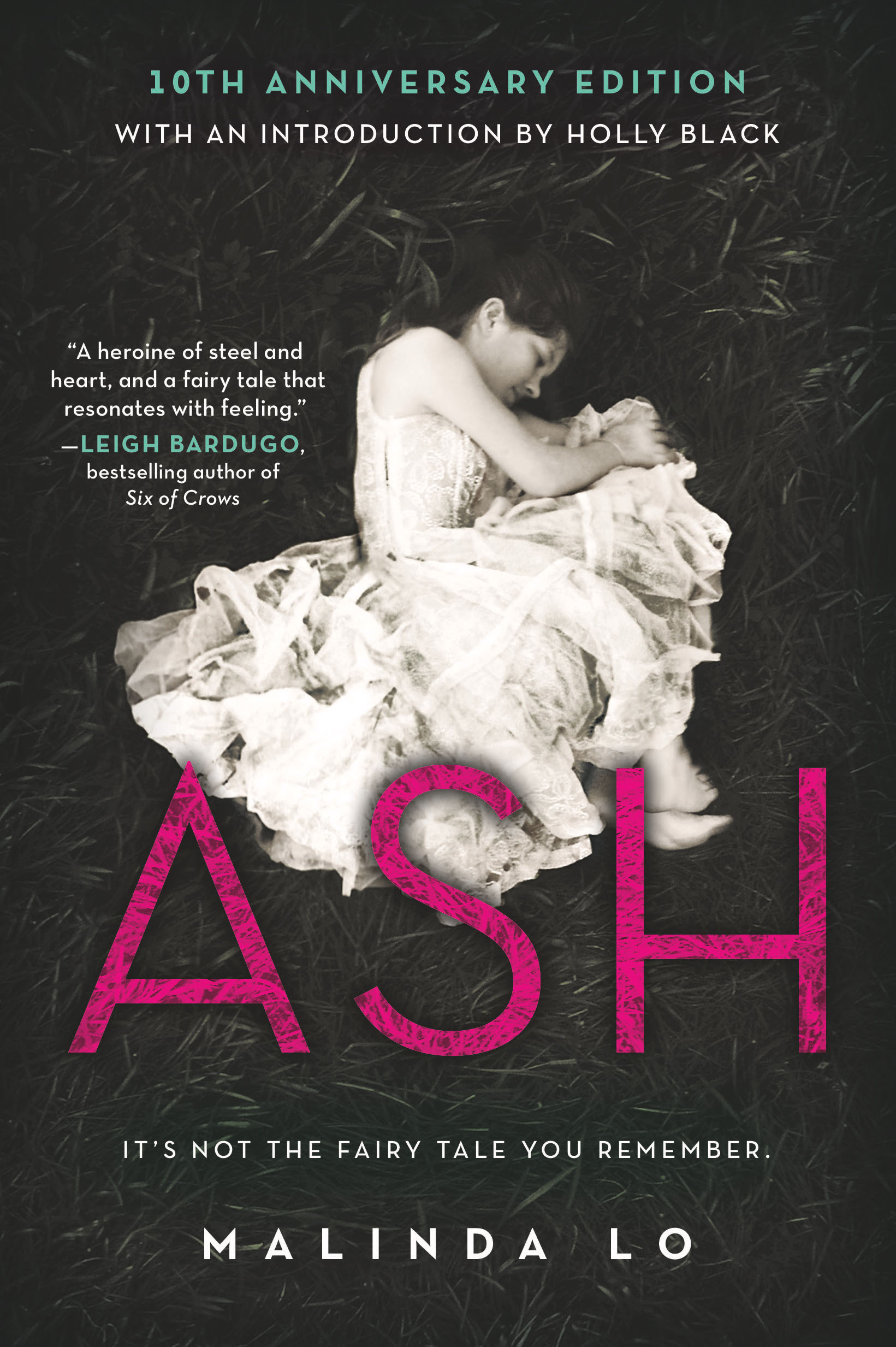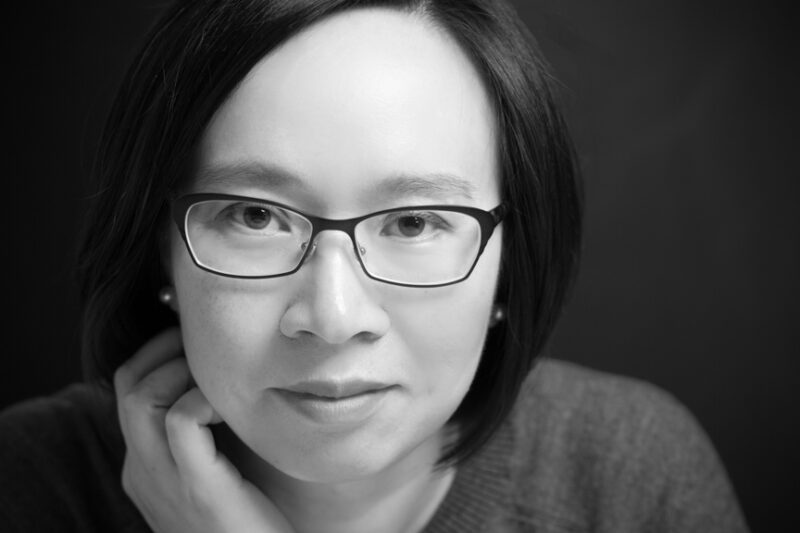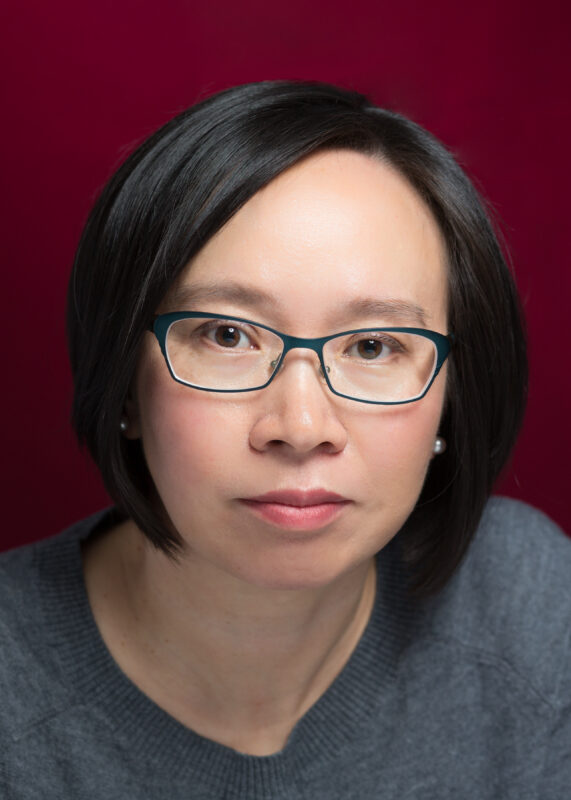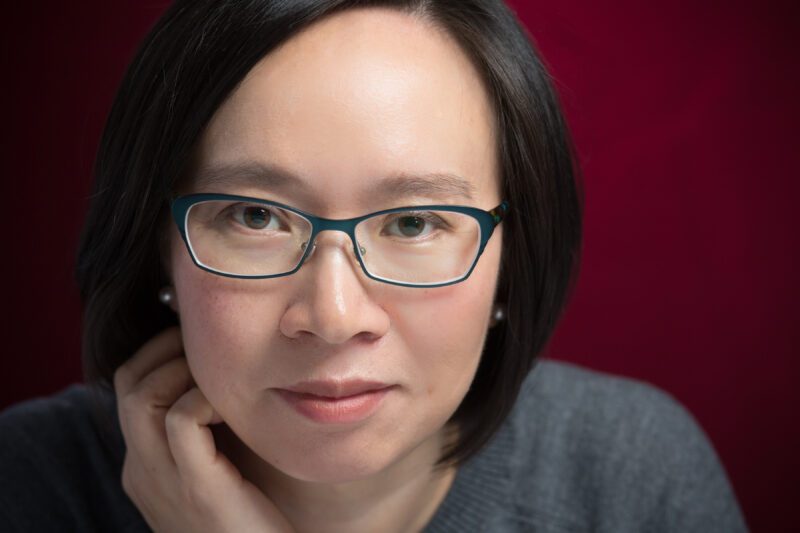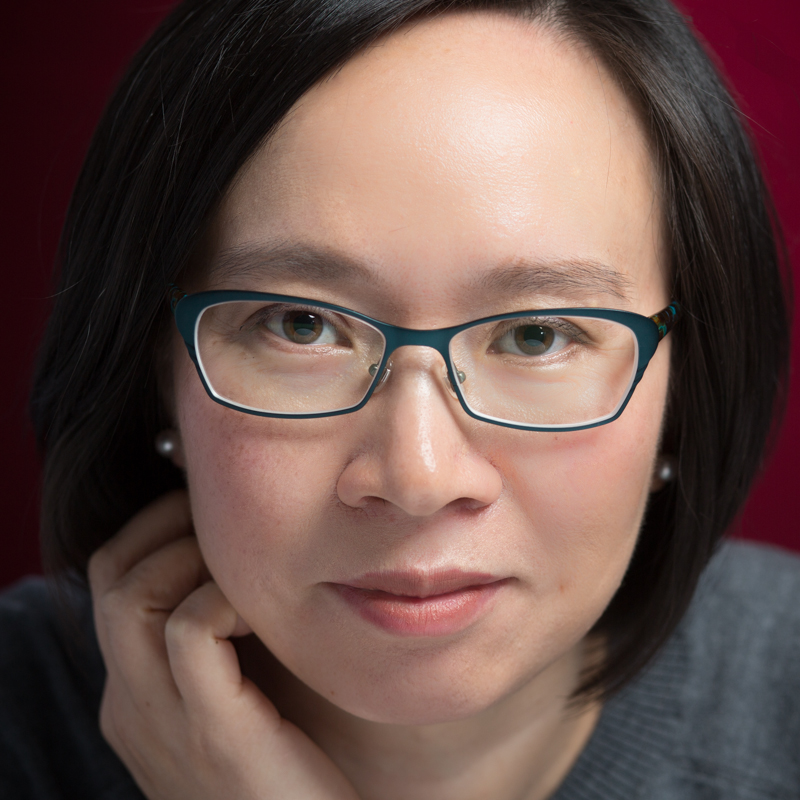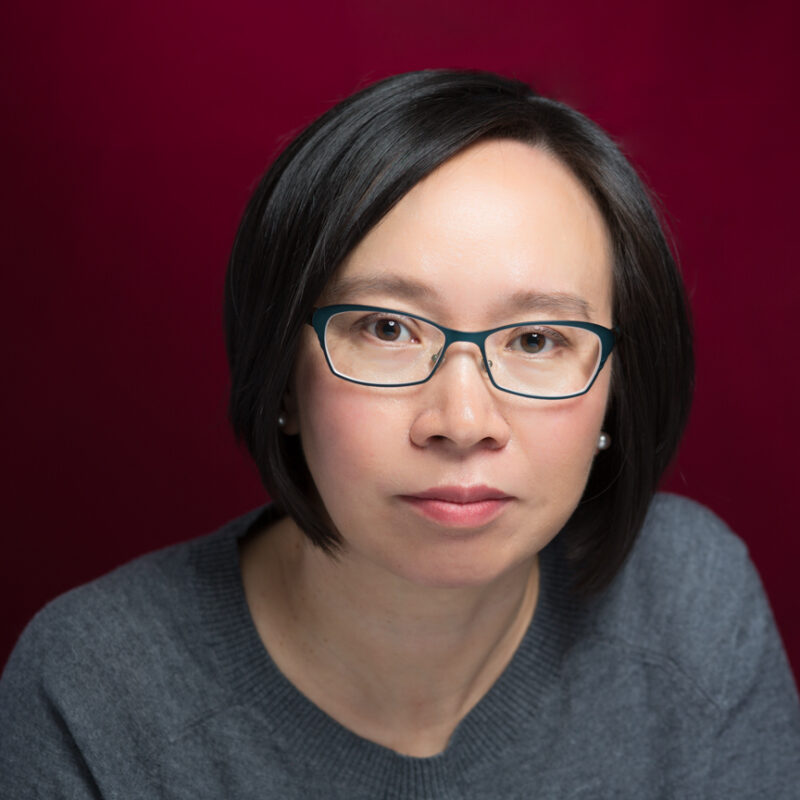
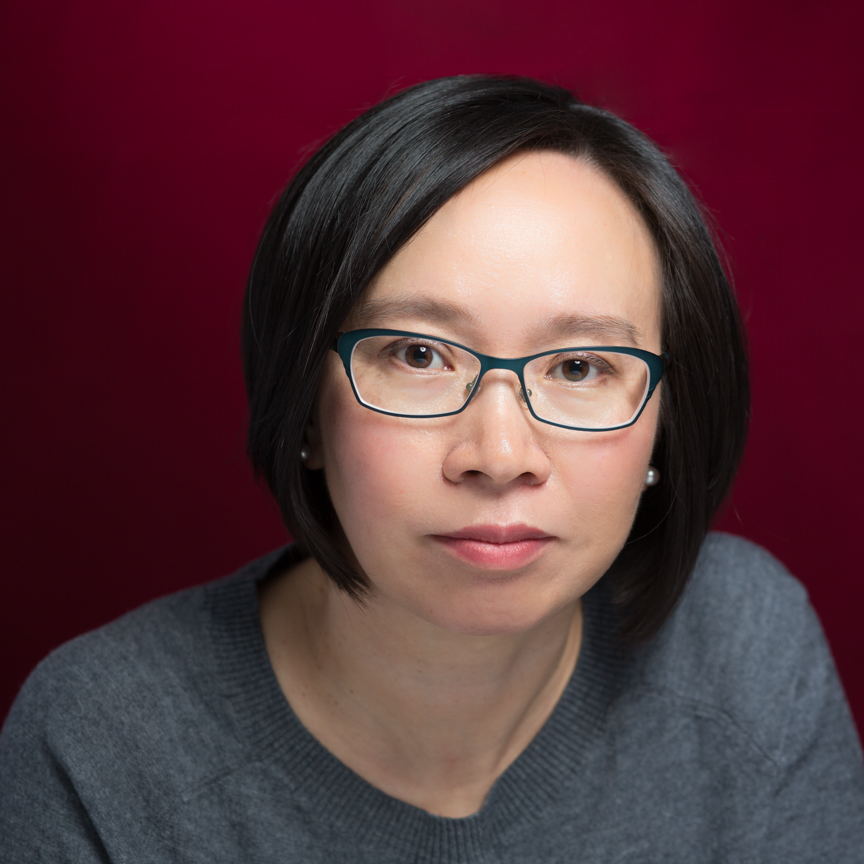
Malinda Lo
Award-winning Fiction & Nonfiction Writer
National Book Award Winner
Lambda Literary Award
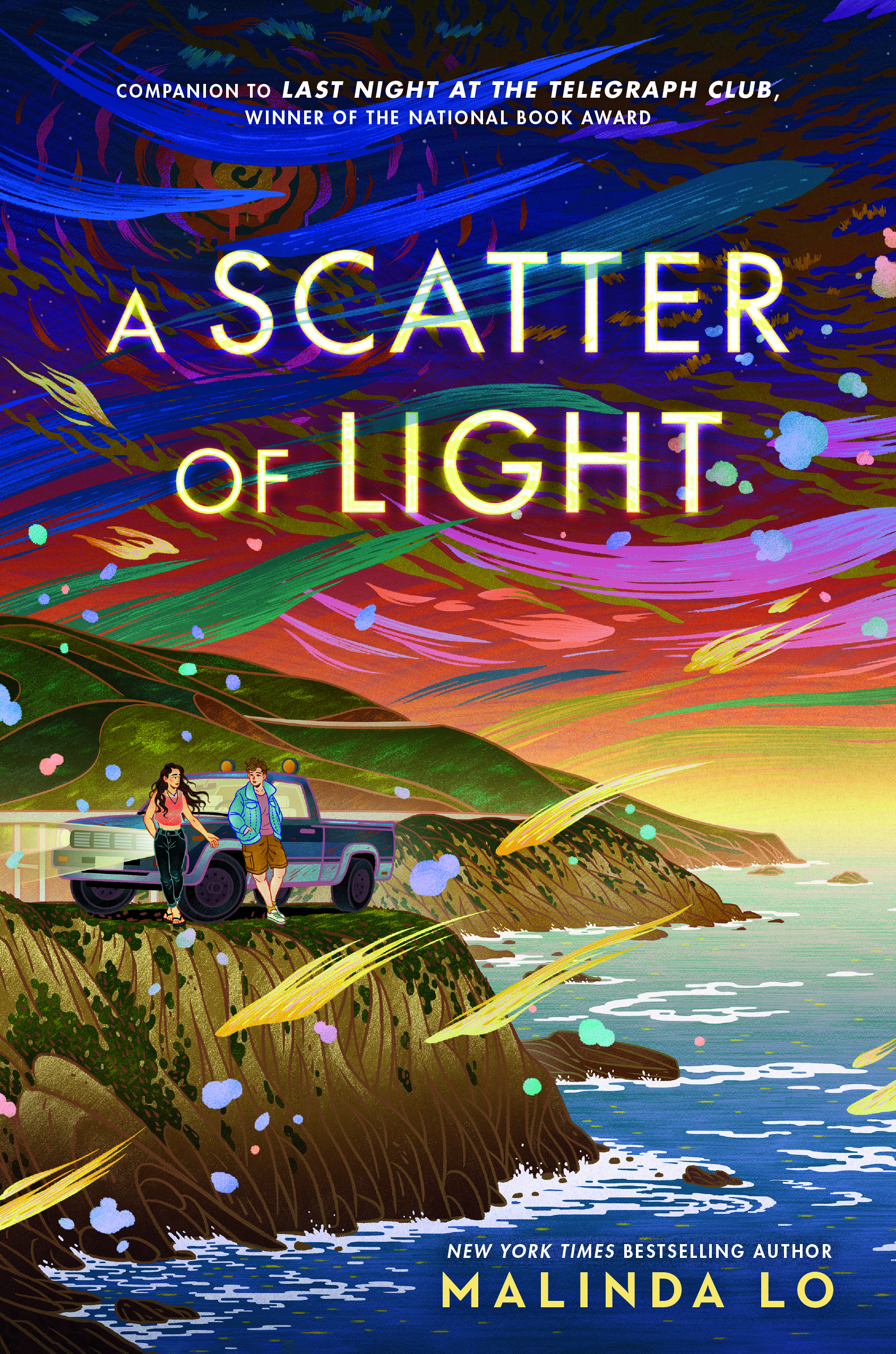
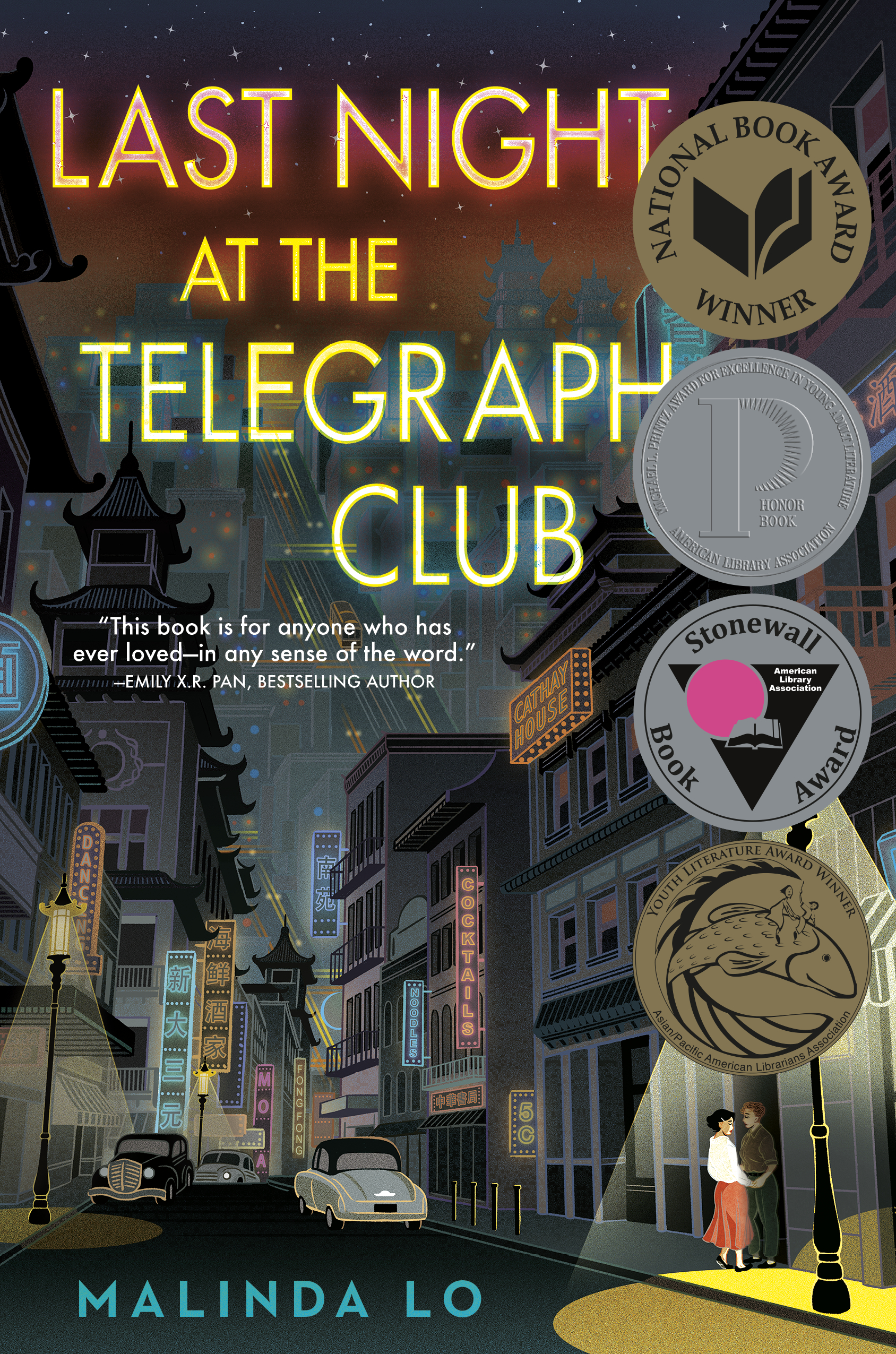
Readings &
Lecture Topics
- Reimagining the World
- How To Be a Writer
- Chinese American Cookbooks & the Regulation of Ethnic Identity
-
Inside the Telegraph Club: On the Real History Behind Last Night at the Telegraph Club
-
Writing With Diversity
-
How to Write Books That Influence People: On Developing Authority as a Writer
-
Building Fictional Worlds
- Book Banning and Artistic Freedom
- An Evening with Malinda Lo
Biography
“Lo’s writing is so rich you can practically feel the glow of neon bar lights radiating off the page.” —Casey McQuiston
“Lush, ambitious, and layered.” —Ms Magazine
Malinda Lo is the New York Times bestselling author of seven novels, including most recently A Scatter of Light (Dutton, 2022). Her novel Last Night at the Telegraph Club (Dutton, 2021) won the National Book Award, the Stonewall Book Award, the Asian/Pacific American Award for Literature, Michael L. Printz and Walter Dean Myers honors, and was a finalist for the LA Times Book Prize. Her debut novel Ash (Little, Brown, 2010), a Sapphic retelling of Cinderella, was a finalist for the William C. Morris YA Debut Award, the Andre Norton Award for YA Science Fiction and Fantasy, the Mythopoeic Fantasy Award, and the Lambda Literary Award.
Of Lo’s most recent novel, Autostraddle observed: “A Scatter of Light is a book of crashes (and crushes) with effects that reverberate across time. It is queer in the best of ways — messy, raw, heartbreaking, freeing, and imperfect.” NPR called the book: “a novel for anyone who has ever dared to wonder ‘what if?'”
Lo’s novels have been selected for many best-of lists, including the American Library Association’s Best Fiction for Young Adults, the ALA’s Rainbow List, Bank Street College’s Best Children’s Books, the Locus Recommended Reading List, and the James Tiptree Jr. Longlist. Malinda’s short fiction and nonfiction has been published by The New York Times, Autostraddle, Foreshadow, NPR, The Toast, The Horn Book, and multiple anthologies.
Born in Guangzhou, China, Lo immigrated to the United States as a child with her family, and grew up near Boulder, Colorado. She was associate editor at Curve Magazine (2006), the U.S.’s top-selling lesbian magazine; managing editor at AfterEllen (2006-08), the world’s largest website for lesbians and bisexual women; and wrote for a variety of LGBT news publications. Lo was awarded the Sarah Pettit Memorial Award for Excellence in LGBT Journalism by the National Lesbian & Gay Journalists Association in 2006. She is a recipient of the Alice B Award, has been honored by the Carnegie Corporation as a Great Immigrant, and is a two-time nominee for the Astrid Lindgren Memorial Award, the world’s largest award for children’s and young adult literature.
Currently, Lo lives in Massachusetts with her wife and their dog.
Short Bio
Malinda Lo is the New York Times bestselling author of seven novels, including A Scatter of Light. Her novel Last Night at the Telegraph Club won the National Book Award, the Stonewall Book Award, the Asian/Pacific American Award for Literature, a Printz Honor, and was an LA Times Book Prize finalist. Her books have received 15 starred reviews and have been finalists for multiple awards, including the Andre Norton Award and the Lambda Literary Award. She has been honored by the Carnegie Corporation as a Great Immigrant. Malinda’s short fiction and nonfiction has been published by The New York Times, NPR, Autostraddle, The Horn Book, and multiple anthologies. She lives in Massachusetts with her wife and their dog.
Visit Author WebsiteVideos
Publications
A Scatter of Light
Novel, 2022
Last Night at the Telegraph Club author Malinda Lo returns to the Bay Area with another masterful queer coming-of-age story, this time set against the backdrop of the first major Supreme Court decisions legalizing gay marriage.
Aria Tang West was looking forward to a summer on Martha’s Vineyard with her best friends—one last round of sand and sun before college. But after a graduation party goes wrong, Aria’s parents exile her to California to stay with her grandmother, artist Joan West. Aria expects boredom, but what she finds is Steph Nichols, her grandmother’s gardener. Soon, Aria is second-guessing who she is and what she wants to be, and a summer that once seemed lost becomes unforgettable—for Aria, her family, and the working-class queer community Steph introduces her to. It’s the kind of summer that changes a life forever.
And almost sixty years after the end of Last Night at the Telegraph Club, A Scatter of Light also offers a glimpse into Lily and Kath’s lives since 1955.
Last Night at the Telegraph Club
Novel, 2021
“The queer romance we’ve been waiting for.”—Ms. Magazine
Seventeen-year-old Lily Hu can’t remember exactly when the feeling took root—that desire to look, to move closer, to touch. Whenever it started growing, it definitely bloomed the moment she and Kathleen Miller walked under the flashing neon sign of a lesbian bar called the Telegraph Club. Suddenly everything seemed possible.
But America in 1954 is not a safe place for two girls to fall in love, especially not in Chinatown. Red-Scare paranoia threatens everyone, including Chinese Americans like Lily. With deportation looming over her father—despite his hard-won citizenship—Lily and Kath risk everything to let their love see the light of day.
A Line in the Dark
Novel, 2017
Jess Wong is Angie Redmond’s best friend. And that’s the most important thing, even if Angie can’t see how Jess truly feels. Being the girl no one quite notices is OK with Jess anyway. If nobody notices her, she’s free to watch everyone else. But when Angie begins to fall for Margot Adams, a girl from the nearby boarding school, Jess can see it coming a mile away. Suddenly her powers of observation are more a curse than a gift.
As Angie drags Jess further into Margot’s circle, Jess discovers more than her friend’s growing crush. Secrets and cruelty lie just beneath the carefree surface of this world of wealth and privilege, and when they come out, Jess knows Angie won’t be able to handle the consequences.
When the inevitable darkness finally descends, Angie will need her best friend.
“It doesn’t even matter that she probably doesn’t understand how much she means to me. It’s purer this way. She can take whatever she wants from me, whenever she wants it, because I’m her best friend.”
Adaptation
Novel, 2012
Across North America, flocks of birds hurl themselves into airplanes, causing at least a dozen to crash. Thousands of people die. Fearing terrorism, the United States government grounds all flights, and millions of travelers are stranded.
Reese and her debate team partner and longtime crush David are in Arizona when it happens. Everyone knows the world will never be the same. On their drive home to San Francisco, along a stretch of empty highway at night in the middle of Nevada, a bird flies into their headlights. The car flips over. When they wake up in a military hospital, the doctor won’t tell them what happened, where they are–or how they’ve been miraculously healed.
Things become even stranger when Reese returns home. San Francisco feels like a different place with police enforcing curfew, hazmat teams collecting dead birds, and a strange presence that seems to be following her. When Reese unexpectedly collides with the beautiful Amber Gray, her search for the truth is forced in an entirely new direction–and threatens to expose a vast global conspiracy that the government has worked for decades to keep secret.
Adaptation is a bold contemporary science-fiction thriller from the acclaimed author of Ash.
Inheritance
Novel, 2013
Reese and David are not normal teens-not since they were adapted with alien DNA by the Imria, an extraterrestrial race that has been secretly visiting Earth for decades. Now everyone is trying to get to them: the government, the Imria, and a mysterious corporation that would do anything for the upper hand against the aliens.
Beyond the web of conspiracies, Reese can’t reconcile her love for David with her feelings for her ex-girlfriend, Amber, an Imrian. But Reese’s choice between two worlds will play a critical role in determining the future of humanity, the Imria’s place in it, and the inheritance she and David will bring to the universe.
In this gripping sequel to Adaptation, Malinda Lo brings a thoughtful exploration of adolescence, sexuality, and “the other” to a science-fiction thriller that is impossible to put down.
Huntress
Novel, 2011
Nature is out of balance in the human world. The sun hasn’t shone in years, and crops are failing. Worse yet, strange and hostile creatures have begun to appear. The people’s survival hangs in the balance.
To solve the crisis, the oracle stones are cast, and Kaede and Taisin, two seventeen-year-old girls, are picked to go on a dangerous and unheard-of journey to Tanlili, the city of the Fairy Queen. Taisin is a sage, thrumming with magic, and Kaede is of the earth, without a speck of the otherworldly. And yet the two girls’ destinies are drawn together during the mission. As members of their party succumb to unearthly attacks and fairy tricks, the two come to rely on each other and even begin to fall in love. But the Kingdom needs only one huntress to save it, and what it takes could tear Kaede and Taisin apart forever.
The exciting adventure prequel to Malinda Lo’s highly acclaimed novel Ash is overflowing with lush Chinese influences and details inspired by the I Ching, and is filled with action and romance.
Ash
Novel, 2009
In the wake of her father’s death, Ash is left at the mercy of her cruel stepmother. Consumed with grief, her only joy comes by the light of the dying hearth fire, rereading the fairy tales her mother once told her. In her dreams, someday the fairies will steal her away. When she meets the dark and dangerous fairy Sidhean, she believes that her wish may be granted.
The day that Ash meets Kaisa, the King’s Huntress, her heart begins to change. Instead of chasing fairies, Ash learns to hunt with Kaisa. Their friendship, as delicate as a new bloom, reawakens Ash’s capacity for love–and her desire to live. But Sidhean has already claimed Ash for his own, and she must make a choice between fairy tale dreams and true love.
Entrancing and empowering, Ash beautifully unfolds the connections between life and love, and solitude and death, where transformation can come from even the deepest grief.
Articles & Audio
Read What’s In Print
• Mesmerizing: Review of A Line in the Dark – Kirkus Reviews
• Starred Review: Last Night at the Telegraph Club – Bookpage
• Malinda Lo on Writing a Coming-of-Age Love Story – Lambda Literary
• Q&A: Malinda Lo, Author of Last Night at the Telegraph Club – Nerd Daily
• Review: A Line in the Dark by Malinda Lo – Publishers Weekly
• Profiles: Malinda Lo Is on the Level – Kirkus Reviews
Listen to Audio
• Lo makes National Book Award history with Last Night at the Telegraph Club – NPR
• Author Malinda Lo on the Limits of the Young Adult Label – Slate
Selected Writings
• Read “Transformers: Reimagining the World” by Malinda Lo – The Horn Book
“Red” (originally published in Foreshadow)
The east is red when Xiaohong leaves the two-room apartment that has been allocated to her and her parents—two rooms carved out of a once-grand courtyard home, now divided between five families by order of the local Party authorities. The manor has been forced into a new identity, with makeshift kitchens elbowing their way into the sky well, and the walls pasted over with red posters of Chairman Mao quotations. The speaker for the public address system, installed in one corner of the sky well, blasts announcements at all hours, but it has been mercifully quiet so far this morning.
“Take this to your Popo,” Xiaohong’s mother had told her, handing her a small covered basket. “She is sick, and I cannot visit her today.” Inside the basket is a feast saved up carefully from their rations: two plain steamed buns, a small tin bowl of bean curd stir-fried with bits of pork, and a bottle of pork bone broth. Popo, Xiaohong’s grandmother, lives outside of town in a dilapidated mudbrick farmhouse, alone now that Xiaohong’s grandfather, who was branded a counterrevolutionary, has died.
The morning is cool and slightly damp; the night’s rain has left traces of bright water in the ruts on Anti-revisionist Street. Xiaohong has walked the three miles to Popo’s house countless times before, and she likes to start out early, while the town is still quiet and the sky has not yet fully lightened. She likes to watch the sunrise spreading red and then gold like a spilled yolk over the old town wall. Thinking of eggs, her stomach rumbles: she has not yet eaten. She peeks beneath the red cloth that covers her basket, gazing hungrily at the plump white buns, but does not steal a bite. Popo is elderly and has pneumonia, while Xiaohong is only sixteen and perfectly healthy, even if she is all too accustomed to an empty stomach.
On the corner of Anti-revisionist Street and Red Guard Road, a lanky boy pushes a motorbike out of the shadow of the town wall. He wears a khaki uniform with a red armband tied around his left bicep. When he sees Xiaohong, a wolfish grin twists his face. “Xiaohong, you’re out early,” he says.
The boy is Wu Lang. They went to school together, before the schools were shut down last summer so that they could make revolution. “Wu Lang,” Xiaohong says warily. “Hello.”
“Where are you off to?” he asks.
He is pretending to be casual and friendly, but Xiaohong knows better. “I’m bringing this food to my Popo,” she answers carefully.
He moves to block the street in front of her with his motorbike, and then saunters over. “How is the famous Lin Popo?”
Xiaohong knows he is baiting her by using the word famous. She ignores it and says, “She is sick. I should go.”
“If I remember correctly, your grandmother lives three miles away. Are you walking there?”
“Yes.”
“What food are you bringing her?” He comes closer and plucks the red cloth off the basket, tossing it onto the ground. His fingernails are grimy, and Xiaohong suddenly remembers the way he caught Yulin’s kitten in his hands last year, squeezing the animal’s furry little neck until it squealed, its tiny white teeth useless against him. “Mmm, looks delicious,” he says, studying the contents of the basket. “I haven’t eaten yet.”
Without asking for permission, he takes both buns and devours them in two bites. Xiaohong glimpses the dark red cavern of his mouth, his teeth slick with saliva. She hastily kneels down to pick up the fallen red cloth, tucking it back over the basket before he can take more of the food.
“I’m off to see your grandmother too,” Wu Lang says.
She looks at him in shock. “You are?”
His mouth curves into a cold smile. “I wonder who will arrive first?” Then he jumps onto his motorbike and twists the handlebars, gunning the engine. “Long live Chairman Mao!” he cries.
“Long live Chairman Mao,” she echoes. He salutes her as if she were a Red Guard like him, but she knows he is only mocking her. His motorbike roars and cuts a track in the dirt road as he jerks it around, speeding through the town gate.
Fear is a meaty hand squeezing her lungs. Her heart pounds as she hurries after him.
* * *
Wu Lang has never been to Xiaohong’s grandmother’s home, but he knows where it is. There is only one counterrevolutionary widow who used to be a famous Shanghai actress living in the area. Indeed, Wu Lang and the other Red Guards often discuss where the counterrevolutionaries are located. If they are to make revolution, they must root out the black elements among them.
It isn’t long before he reaches the derelict farmhouse on the empty country road. A middle peasant and his family also used to live there, but the middle peasant hanged himself a few months ago, and his wife and children moved back to their home village, a hundred miles away. Now the only person still living in the farmhouse is Xiaohong’s grandmother.
The front door is closed tight. The dirty white wall is bare of any decoration—not even a photograph of Chairman Mao torn from the People’s Daily. Wu Lang cuts the engine of his motorbike, and silence descends like a knife across the morning. Not a single bird sings as he strides up the dirt path to the wooden front door.
Wu Lang pounds on the door, and it shakes on its hinges. “Lin Popo,” he calls. “Let me in!”
There is no answer. Wu Lang’s anger builds in the thick silence; his breath is hot as a furnace in his lungs.
“Lin Popo!” he shouts again, and though he might have heard her whispered response had he been listening, he does not listen.
He shoves the door; the bottom hinges give way and the door sags open. He enters carelessly, not bothering to take off his shoes. Inside, the farmhouse is cold and dark. A shovel and a scythe lean against the wall, the curve of the scythe’s blade catching the sunlight slanting through the front door. He stomps through the main room and turns to the right. The room is empty, but at last he sees Chairman Mao. A newspaper article about the Great Leader’s famous swim cross the Yangtze River is taped to the wall just inside the door.
“Lin Popo!” Wu Lang yells. He goes back through the main hall to the other room. This is the kitchen, lit by a single hanging lightbulb, and a fire is burning in the stove.
“You have found me,” croaks a voice behind him.
Wu Lang turns toward the sound and sees a cot set up in the dim corner. In the cot lies Lin Popo, the blankets drawn up to her chin. Wu Lang strides over and peers down at the old woman. Her face is wrinkled and wizened as a walnut; her white hair escapes in spider silk-like wisps from beneath the black cloth she has tied over her head. But her eyes are bright and clear as a robin that has spotted a worm in the ground.
“What do you want?” Lin Popo asks.
“To carry the revolution through to the end!” Wu Lang answers. “To drive out the Four Olds!”
“I admit,” Lin Popo says, “that I am old.”
“You are decadent bourgeoisie,” Wu Lang declares.
Lin Popo smiles coyly, and though her cheeks are sunken and her skin is spotted with age, the beauty she was in her youth is still visible, like a ghost, in the curve of her mouth and the shine of her eyes.
This glimpse of her bourgeois past infuriates Wu Lang. He spins around, searching for evidence of her pre-communist decadence. The room is bare of anything obviously incriminating; there is only a small wooden table and chair, a wooden cupboard, and the cot. Wu Lang yanks open the door to the cupboard; inside are two bowls, chopsticks, a dried-out knob of ginger, a battered black pot, and a cleaver. While he is bending over to look in the cupboard, he realizes there is space to hide something beneath the cot. He goes back to Lin Popo’s corner, gets on his knees, and peers underneath.
A book has been shoved back against the wall. He pulls it out; it is a Buddhist tract. “This is one of the Four Olds,” he announces. “We must break away from old ideology, old culture, old customs, and old habits! There is no place for this in modern China.”
“Modern China arises from the old,” Lin Popo says.
He rips out page after page in fury, and a photograph flutters from the book toward the floor. It’s a hand-colored picture of a beautiful young woman wearing a white qipao embroidered with pink and red flowers. Her lips are vividly red, her cheeks rouged as pink as the Chairman’s. Her eyes are Lin Popo’s eyes, and he realizes it’s a photo of her from forty years ago, when she was an actress.
It disgusts him. He crumples up the photo, preparing to throw it into the fire, but obliterating it is not enough.
The bourgeoisie must be destroyed. Lin Popo must be destroyed.
“Revolution is not a dinner party,” Wu Lang recites as he glares down at Lin Popo.
Her face is serene as a deep mountain lake, and it enrages him.
“It cannot be so refined, so leisurely and gentle,” Wu Lang continues, the Great Leader’s words rolling off his tongue like thunder.
Lin Popo does not flinch as he hurls the book and her picture into the fire.
“A revolution is an insurrection, an act of violence,” Wu Lang snarls.
Lin Popo only watches him implacably as he picks up the cleaver and stalks toward the cot.
His lungs heave, filled with revolutionary fervor. She closes her eyes so that she does not have to look at his monstrous face. She feels the blade bite into her neck—the same blade she used to prepare food for her children—and her blood spills bright red upon the thin pillow, redder than the sunrise in the east, redder than the band on Wu Lang’s arm.
* * *
Xiaohong has run almost all the way to her grandmother’s house. Her skin is wet with sweat when she arrives, breathless, and sees Wu Lang’s motorbike parked outside. The farmhouse’s front door hangs open on one hinge, like a sleeping mouth partially agape. Xiaohong’s stomach churns with dread. She enters the house on trembling legs, and hears the sizzle of meat in a wok. The unmistakable scent of ginger hangs in the air. Confused, she wonders if her grandmother has miraculously risen from her sickbed to cook a meal. Hope buds in her, and she takes off her shoes and tiptoes toward the kitchen.
Wu Lang stands at the stove, tossing slivers of meat together in the wok. There is no trace of the cot where Popo slept, only a smear of something dark and shiny in the corner where it used to stand. Xiaohong’s hope shrivels.
Wu Lang sees her in the doorway. “Xiaohong,” he growls. “Have you eaten?” He scoops the cooked meat out of the wok and into a waiting bowl, placing it on the table next to an earthenware teapot and cup.
“No,” she says. Her skin crawls at the savage smile on his face.
“You must be hungry,” Wu Lang says. “Come in.”
She yearns to flee, but she forces herself to stay. She sets the basket of food on the floor. “Where is my grandmother?” she asks.
“She has gone out.” Wu Lang approaches her. “Sit down and eat.”
When she does not obey, he lunges toward her and clamps his hand around her arm, dragging her to the table and shoving her into the chair. She cries out in pain. He pushes the bowl of meat toward her and pours a dark, steaming liquid from the teapot into the cup. Has she imagined the claws on his fingertips? They click against the pottery.
“I am not hungry,” Xiaohong lies.
Wu Lang looms over her. “I could hear your stomach growling from a mile away,” he says. “Eat and drink. Your grandmother would not want you to go hungry.”
“Where is Popo?” she asks again.
“Eat and drink,” Wu Lang says, grinning, “and I will tell you.” Has she imagined the sharp points of his teeth, like daggers?
Shuddering, she reluctantly draws the bowl of shredded meat toward her. It has an unsettling fragrance. She smells the ginger, but there is something else too, something oddly familiar, like the scent of her grandmother’s skin: crushed roses, milk, and soap. Her empty stomach clenches, and she gags on the burning acid that rises hotly in the back of her throat.
With a growl of frustration, Wu Lang thrusts the chopsticks into her hand. She recoils from his touch, her blood curdling as she looks up at him. His eyes are extraordinarily large. Has she imagined their golden gleam? They are lupine; ravenous.
She drops her gaze hastily, and the glistening meat is waiting for her. She knows that Wu Lang will force her to eat it. She hears the angry exhalation of his breath as he watches her. Before he can touch her again, she raises a bite to her mouth—
And to her shock, the meat is soft and tender, more delicious than anything she has ever tasted. It is miraculous: like a single perfect pearl within the clutch of an oyster’s muscle, like the sweet flesh of a lychee as it emerges from its vermilion shell.
In that instant, she understands everything. Wu Lang has killed her grandmother and made a meal of her. It should taste polluted: foul and contaminated as the stench of Wu Lang’s breath. But it does not.
It is as if her grandmother has offered up her soul to Xiaohong as nourishment, as if she is whispering in her ear: eat me.
Xiaohong picks up the earthenware teacup and sips the hot, thick liquid. She tastes the power of her grandmother’s blood on her tongue, earthy and rich as fermented bean curd. Every year of her long life is a fire spreading through Xiaohong’s blood. Ten thousand memories in one deep breath, the taste of love on her lips, bone-crushing pain and bittersweet wisdom like flakes of salt on her tongue. She eats every bite. She drinks all of the tea.
Wu Lang watches her, gloating. “Dragons give birth to dragons, and phoenixes give birth to phoenixes,” he says, “but a rat’s descendants can only dig holes. You will never be more than your parents and your grandparents. You will always be a bastard!”
Xiaohong raises her eyes to meet his. She feels Popo rising within her like a phoenix stretching its wings. “You are right,” she says. “I will never be more than my parents and my grandparents. Fortunately, they are great people!”
She stands up and runs toward the main hall. Wu Lang growls and lunges after her. In the shadow of the broken front door she reaches for the scythe. She spins to face him. His shadow stretches wolf-like along the floor, his muzzle dripping with long thick threads of spittle, and he swipes at her with his paw-like hands.
The scythe whistles through the air and slices off his hand. It tumbles onto the floor, scattering a spray of black blood in its wake. Wu Lang yelps like a wounded animal and clutches the stump of his arm close to his body, shrinking away from her.
But the hand on the floor is not a human hand—it is a wolf’s paw. The fur is black with gore, the claws sharp as razors.
“As Chairman Mao proclaims, letting ghosts and spirits out of their hiding places makes it easier to annihilate them,” Xiaohong says. “We must sweep away all monsters and demons!” She raises her scythe high, advancing on him.
Wu Lang flees, running into the yard and jumping on his motorbike, holding on with his remaining hand as he speeds away. Standing in the doorway, Xiaohong watches until she can no longer see the dust trail behind the motorbike, and then she puts down the scythe and steps around the wolf’s paw that lies like a dead rat on the floor.
She goes back to the kitchen and opens the iron door to the stove’s firebox. Inside, a photograph is wedged between the glowing coals, but the paper is unburned. She pulls it out, shaking off the ashes, and gazes down at the picture of her grandmother. She smiles up at Xiaohong across the decades, unharmed. Her cheeks are still pink as lotus flowers, her lips red as dates.

